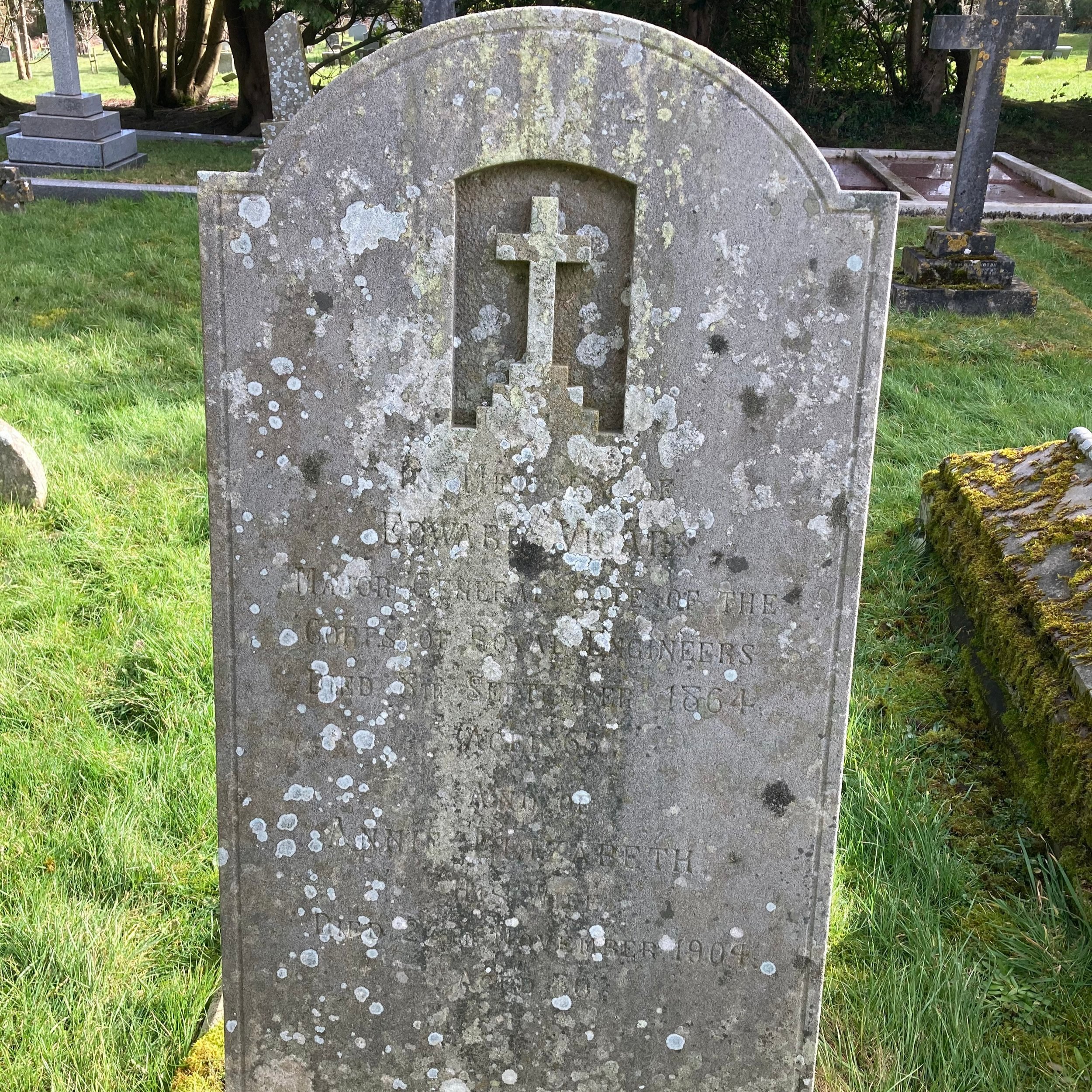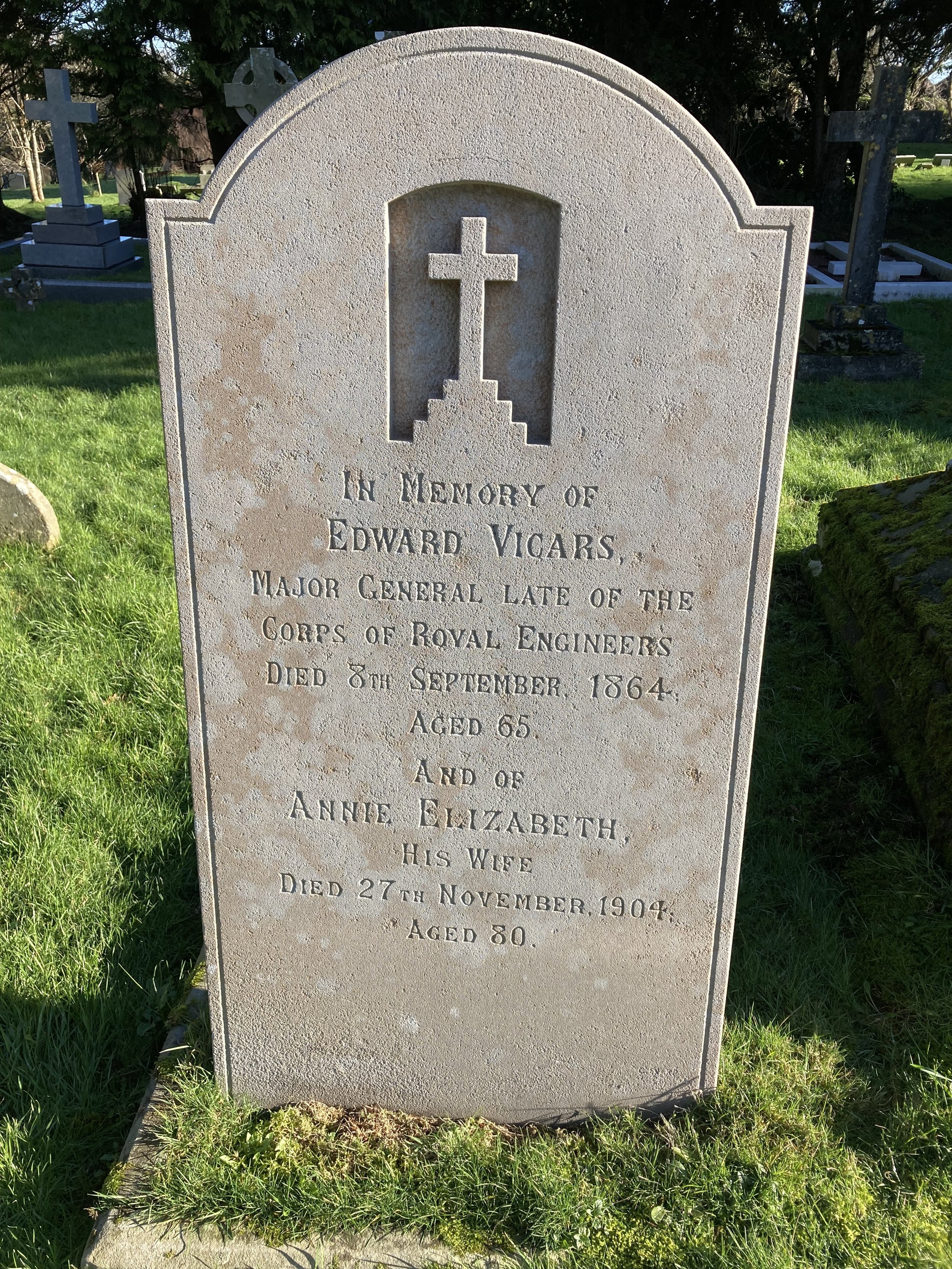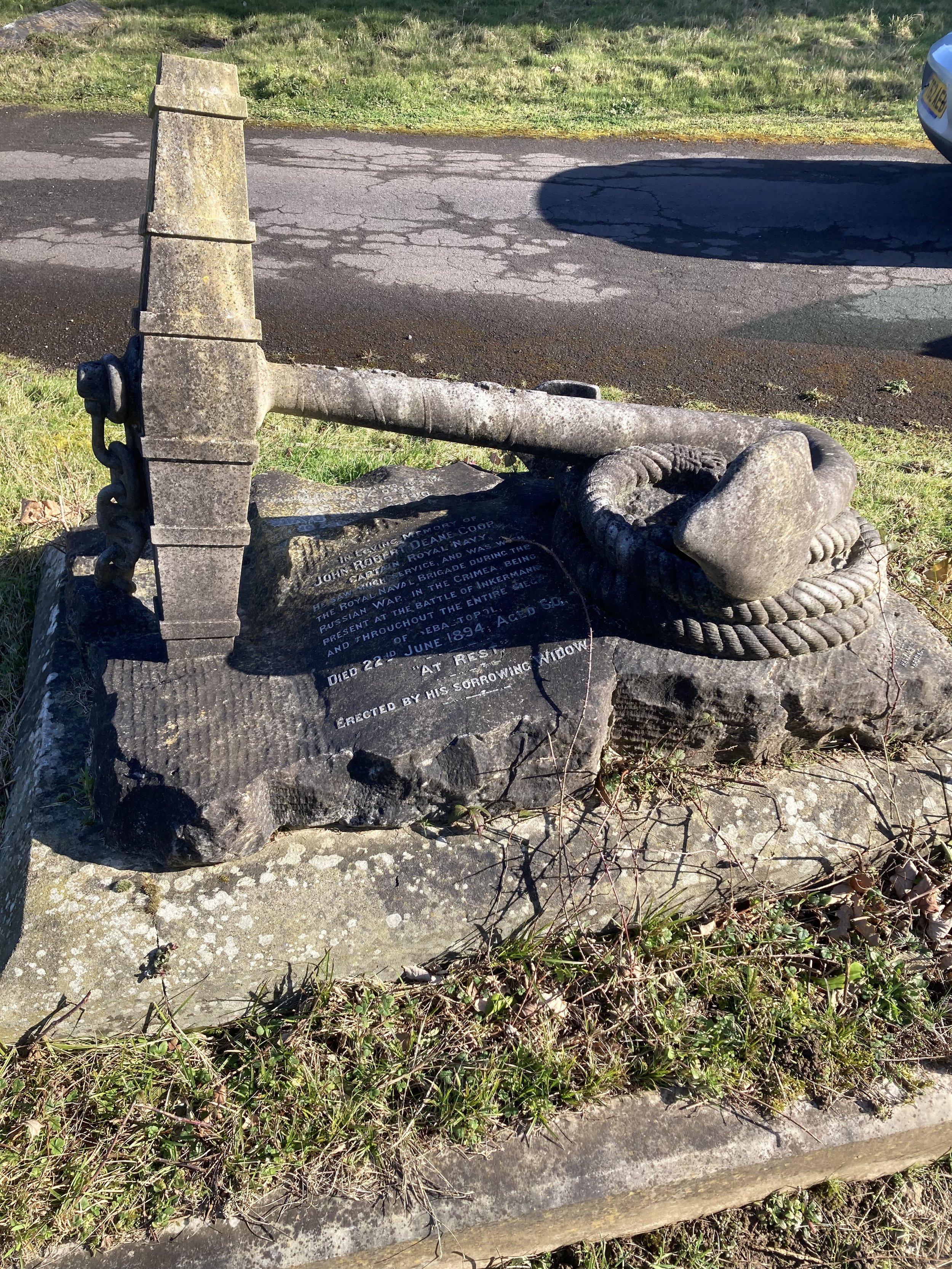Fairlight Cemetery
Hastings, East Sussex
Charles A.F.N. Menzies (1783-1866)
Charles Menzies was born the son of a Captain in the 71st Regiment of Foot in Bal Freike, Perthshire. At 15 years old, he was commissioned into the Royal Marines as a Second Lieutenant and went on to serve in the Blockade of France in the French Revolutionary Wars aboard HMS Holden. In 1803, he sailed on HMS Calcutta to transport prisoners to Australia, where he successfully established the settlement at Newcastle in 1804. Upon his return to Britain, he took command of the Royal Marines of HMS Minerva, and took part in many successful actions in the wars against the French, including leading the capture of the Spanish Fort at Cape Finisterre in June 1806 and Fort Guardia the following month, losing his arm in the latter engagement. He was promoted to Captain of the Royal Marine Artillery in 1813 and eventually rose to become Colonel Commandant of the Portsmouth Royal Marines. He was appointed aide-de-camp to Queen Victoria in 1851, knighted and promoted to General in 1857. Restored by Steve Davies, with research by Paul Cox
Before
After
Before
After
Edward Vicars (1798-1864)
Edward Vicars was born in Ireland and began his military career as a Cartographer in the Royal Engineers. He later served in Spain during the First Carlist War (1833-1840), where he was instrumental in raising the siege of Bilbao. For this, he was awarded the Laureate Cross of San Fernando. In 1853 he was the officer in charge of the construction of the Military Camp at Chobham, Surrey. The following year, he was selected for special duty with the Royal Naval fleet, under the command of Admiral Dundas, in the upcoming Crimean War with Russia, but on his way out to Crimea he became unwell at Lisbon, Portugal and never recovered. He retired on full pay after thirty-two years of service, with the rank of Major General.
Restored by Steve Davies, with research by Paul Cox
Edward Picknell (c1832-1875)
Edward Picknell was born in Hastings and named after his father. He later followed the elder Edward into the plumbing trade and married Catherine Rooney from Belfast in 1854, with whom he had four daughters and a son. Edward joined the Cinque Ports’ Artillery Volunteers, a part-time unit founded in 1860. By 1872, still living in Hastings, he had become a Sergeant-Major, eventually rising to Lieutenant by the time of his death. A large contingent turned out for his military funeral, with several shops shuttering their windows or closing entirely as a mark of respect. The funeral procession featured members of the Local Police, Artillerymen, the Volunteer Fire Brigade (of which Edward had been foreman and a longstanding member) and the band of the Hastings Artillery Volunteers.
Restored by Steve Davies, with research by Paul Cox
Before
After
John Cooper (1834-1894)
John Robert Deane Cooper was born on 14th February 1834 at the Cape of Good Hope, South Africa whilst his father Robert was stationed there as part of the Ordinance Corps. In 1848, at the age of 14, John entered the Royal Navy, serving on HMS Brilliant off East Africa, and then in anti-slavery operations aboard HMS Orestes. During the Eighth Xhosa War (1851-1852) he served aboard HMS Castor and was awarded the Kaffir Medal. He was eventually promoted to Lieutenant by January 1856, serving aboard HMS Wasp in the Mediterranean and the Black Sea during the Crimean War. He also saw service ashore at this time, including at the Battle of Inkerman and the Siege of Sebastapol. In addition to the Turkish and Crimea medals, he was also honoured by the Ottomans and French who appointed him to the Fifth Class of the Order of the Medjidie and 5th Class British Knight of the Legion of Honour respectively. He continued to serve all over the world, but was reprimanded for an error of judgment in an incident in which the gunboat he was commanding ran aground in the Firth of Forth. His final posting was HMS Minotaur in the Channel Squadron. After retiring, he served as a Commander in the Coast Guard between 1871 and 1873. He died in 1894, and was provided an honour guard at his funeral by the Coastguard. His monument was carved by Mr. H. Burchell and features depictions of an anchor and John’s medals.
Restored by Steve Davies, with research by Paul Cox
Before
After
Sergeant Edward Pepper (1874-1913)
Born in Westfield, near Hastings, Edward Pepper was initially an agricultural labourer like his father, William. On 4th January 1892, at the age of 18 years and 3 months, he joined the 3rd Battalion of the Royal Sussex Regiment, and he was promoted to Sergeant on 22nd September 1896. He left the Army on 3rd January 1898, marrying his wife Rosa later that year. He remained a member of the National Reserve, who sent a Guard of Honour to his funeral, following his passing in late September 1913 after an accident in which he fractured his skull.
Restored by Steve Davies, with research by Paul Cox
Before
After










